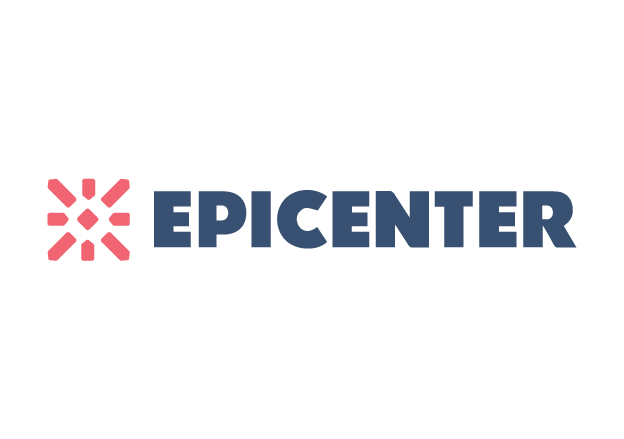Erica Plybeah Hemphill, CEO and Founder of MedHaul
Erica Plybeah Hemphill, CEO & Founder of MedHaul
Access to transportation is one of the primary social determinants of health. Millions of adults miss medical appointments every year due to lack of transportation — appointments that can be the difference between managing chronic illness at home and ending up in the emergency room.
In 2017, Erica Plybeah took a solution to this problem and applied to the Memphis Medical District Collaborative Operation Opportunity Challenge, a business plan competition designed to help solve operational problems within Memphis’ medical district. Plybeah’s idea was one of two companies to win the challenge, and with that, her company, MedHaul, was born.
Plybeah’s company matches patients with the correct type of ride service for their needs and allows hospitals and providers to book and pay for the rides directly. Plybeah understands firsthand how pressing the need for transportation is for patients and providers. “My grandmother struggled a lot with transportation,” she says. “She was a Type 2 Diabetic, double leg amputee. My grandfather wasn’t strong enough to take her to appointments, so my mother was her only transporter. But my mom was a full-time teacher, so trying to schedule doctor visits around a school-time schedule was a mess. There are millions of families across the country going through this.”
Leading up to the Operation Opportunity Challenge competition, Plybeah had seen a billboard advertising cab rides for new mothers. She imagined someone having gone through giving birth climbing into a cab with a newborn and was disturbed. “Just think of an immunocompromised three-day-old being in a cab. [The hospital] meant well, but it just wasn’t appropriate,” she says. She was certain a technology solution could help streamline this critical problem. So she developed the solution herself, and after winning the Operation Opportunity Challenge went on to complete the Epicenter Logistics Accelerator, where she received $50,000 in startup capital to develop her idea.
Despite nearly a decade of experience in the healthcare industry, despite the fact that Plybeah has convinced hospitals to utilize new technology (a notoriously difficult task for medical device startups), and despite a proven track record of managing numerous multi-million dollar projects throughout her career, Plybeah has struggled to connect with investors. “When going to networking events, investors will literally talk to every single entrepreneur in the room except the Black one,” she says. “After the 40th event where no one talks to you, you’re just over it. It’s discouraging and disheartening.”
In the early stages of her company, Plybeah struggled to raise funding. “I was told many times if we met certain metrics, we’d get funding,” she says. “[Potential investors] would say, get one letter of intent, I would get four. They said, get one paid pilot, I got two paid pilots. We overperformed on their expectations and still never got funding.” Plybeah perseveres. “I’m weirdly determined. Overly ambitious,” she says. "There was a time I applied to a job six times and on the seventh time, finally got hired. I knew I had the skills."
Plybeah attributes some of her struggles as a black woman entrepreneur to investors’ lack of exposure to other entrepreneurs who look like her. After all, Black women have raised 0.0006% of all tech venture funding since 2009. “First of all, we need more black people in tech. There’s a lot of education and exposure needed.” While there aren’t many black tech founders in Memphis, Plybeah has found a community of black founders through the Google Black Founders Exchange, a week-long intensive program she went through in 2018. In speaking with fellow black founders, she speaks highly of Epicenter and the support she’s received there. “Before Epicenter was here, I wouldn’t have wanted to do this,” she says. “It’s still hard, but at least I know I have people in my corner who will hear my honest truth. I can say, ‘I went to this event and no one talked to me.’ I really trust and confide in them. I feel like they really care about me.”
Plybeah noted that many founders in her Google cohort don’t have organizations similar to Epicenter to lean on. “It’s more than just the funding,” she says. “They’re a holistic supporter. Capital, connections, shoulder to cry on. They give me guidance that has my best interests at heart. A lot of entrepreneurs don’t have that.”
Plybeah is now working to raise funding and expand MedHaul to additional markets. She is a member of the National Association of Health Service Executives (NAHSE), an organization that promotes the advancement and development of black health care leaders and elevating the quality of health care services rendered to minorities. She serves as the chair of the scholarship committee, awarding $1,000 development grants to young people interested in entering the healthcare space. She brings her four-year-old son to meetings when she can. Her grandmother passed away a few years ago. Still, she returns to her cherished home in Greenwood regularly, committed to giving back to a community that is often forgotten about.
While no one entrepreneur can bear the weight of hundreds of years of broken systems, Plybeah is among those fiercely leading the way in tech so that one day, the road will be easier for black women launching startups. Black women have always been leaders in making change, in providing solutions that do the most good for the most people. Black women are as equipped for innovation as any white man in Silicon Valley. Black women are the entrepreneurs we have been missing. It is time we invest in the companies, innovations and ideas of black women. Black women entrepreneurs deserve our attention and our respect. It’s time to trust black women.



